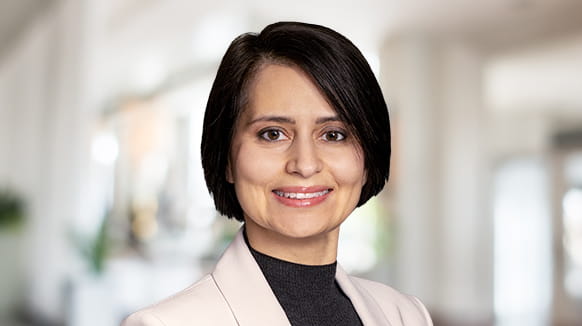U.S. Senator Thom Tillis introduced the Patent Eligibility Restoration Act of 2022, a bill that would codify exceptions to patent eligibility and help to address the uncertainties that exist around what inventions are considered abstract under patent law. … The day before, Senators Tillis and Patrick Leahy’s Patent Examination and Quality Improvement Act of 2022 was announced. This legislation promises to evaluate and improve the patent examination process and the overall quality of patents issued by the U.S. Patent and Trademark Office (USPTO).
Dina Blikshteyn, counsel in the Intellectual Property Practice Group of Haynes Boone and based in New York, gave her views on both bills.
How far will the Patent Eligibility Bill go in terms of patent protection?
The bill may create even more confusion in the patent-eligibility space.
First, the exception provision in paragraph (b)(1)(A) raises an issue as to whether a mathematical formula is patent-eligible when the formula is a useful invention or discovery. The patent examiners will need to decide what constitutes a useful invention or discovery as it pertains to a mathematical formula on a case-by-case basis.
Second, the exception provision in paragraph (b)(1)(B)(i) includes the term ‘technological’. This term is difficult to define and it will be left up to the courts to clarify when economic, financial, business, social, cultural, or artistic process is technological or non-technological.
Third, the condition provision in paragraph (b)(2) raises an issue as to whether software will remain patent-eligible. Practically any software can be distilled into the ‘storing’ and ‘executing’ steps. If the courts interpret Tillis’s bill as such, all software may become patent-ineligible.
On the other hand, the courts may determine that as long as the claims do not recite the ‘storing’ and ‘executing’ limitations, the claims are patent-eligible.
Which sectors do you think will benefit most from the Patent Eligibility Bill?
It is difficult to tell. The language and terms, such as ‘technological’ and ‘useful’ in the bill are open to interpretation. Based on interpretation, certain areas, such as software, business methods, and financial patents may benefit the most or the least.
How will the Patent Eligibility Bill affect the work of patent attorneys and patent owners?
Patent attorneys will certainly read and study the provisions of the bill, and attempt to prepare patent applications and craft claims that would minimise potential patent-eligibility issues.
Excerpted from World IP Review. To read the full article, click here.
